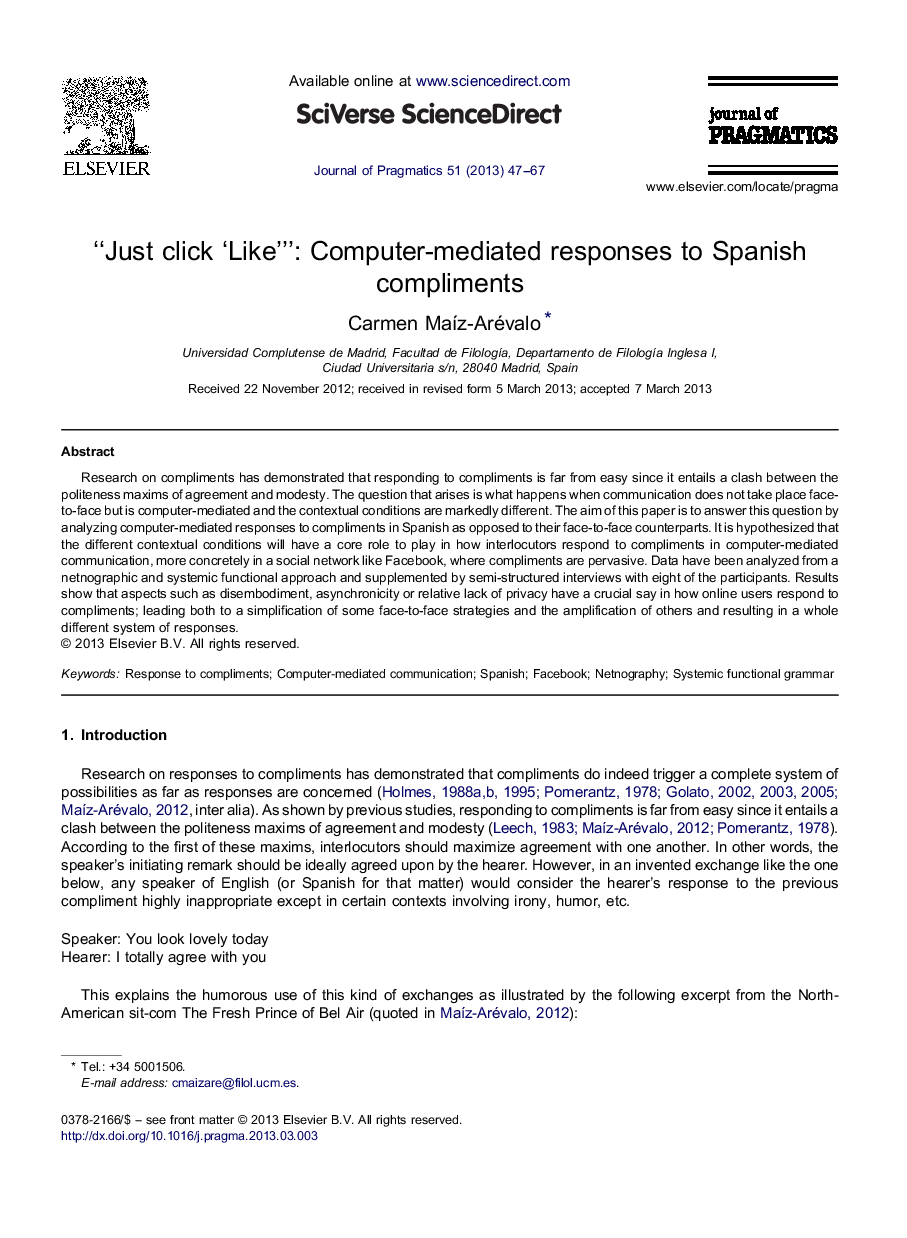| کد مقاله | کد نشریه | سال انتشار | مقاله انگلیسی | نسخه تمام متن |
|---|---|---|---|---|
| 932894 | 1474748 | 2013 | 21 صفحه PDF | دانلود رایگان |

• We contrast face-to-face and online response to compliments in Peninsular Spanish.
• Different contextual conditions affect online responses dramatically.
• A new whole system of compliment response can be established.
• This shows changing patterns in interlocutors pragmatic behavior.
Research on compliments has demonstrated that responding to compliments is far from easy since it entails a clash between the politeness maxims of agreement and modesty. The question that arises is what happens when communication does not take place face-to-face but is computer-mediated and the contextual conditions are markedly different. The aim of this paper is to answer this question by analyzing computer-mediated responses to compliments in Spanish as opposed to their face-to-face counterparts. It is hypothesized that the different contextual conditions will have a core role to play in how interlocutors respond to compliments in computer-mediated communication, more concretely in a social network like Facebook, where compliments are pervasive. Data have been analyzed from a netnographic and systemic functional approach and supplemented by semi-structured interviews with eight of the participants. Results show that aspects such as disembodiment, asynchronicity or relative lack of privacy have a crucial say in how online users respond to compliments; leading both to a simplification of some face-to-face strategies and the amplification of others and resulting in a whole different system of responses.
Journal: Journal of Pragmatics - Volume 51, May 2013, Pages 47–67